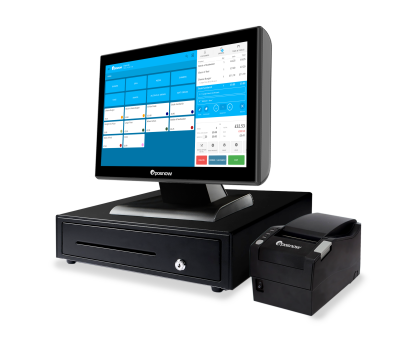How to Start a Blog For Your Business
In many cases, the art of running a successful business goes hand-in-hand with the art of self-promotion. It could be argued that, in today’s image-obsessed commercial landscape, building a powerful brand is more important than offering a superior product or service.
One of the most cost-effective ways you can start to build a brand for your business is to start writing a blog about what you do. When done correctly, blogs can get your business noticed, act as an informal loyalty programme by encouraging your readers to come back for new content, and give your business a clear and unique voice.
While it could be said that blogs are more suited to hospitality businesses than retail, there is space in the blogosphere for anyone willing to put in the work to create engaging content. In this blog, we’ll be exploring ideas around blogging and laying out how you can set one up for your business.
What is a blog?
If you haven’t been on the internet much in the last 30 years, you can be forgiven for not understanding what a blog is. In short, a blog is an article that is published on the internet. Many blogs are focused on a specific topic or subculture. Putting any obscure reference you can think of with “blog” into a search engine is sure to return results.
Gain all the advantages of an EPOS system with detailed, flexible, downloadable reports, and so much more:
- Manage and update products quickly with easy to use software
- Expand your business into multiple channels and integrate with a variety of online platforms
- Manage multiple locations and salespoints with multi-site management
- Keep queues short with streamlined, modifiable sales processes
- Choose a setup that suits you with software and hardware options

Guide to starting a blog
Starting a blog is a lot like starting a business. The more research you do and the more familiar you are with the landscape, the better your chances will be of running a successful blog. Below, we’ve compiled a list of things you should think about before you start writing and publishing your content.
Know your audience
While writing a blog my seem like a very personal experience, in actuality you must remember who will be reading your words. A small business blog should concentrate on appealing to your intended audience first and foremost. It's important to keep in mind that a business blog is a marketing tool like social media adverts or physical flyers.
Think about what you want to achieve with your blog. You’re trying to attract customers to your website and so you should write content that appeals to their sensibilities. Perhaps you can answer questions your customers have about your business or give industry insights from an insider perspective.
Consider your content
While your impulse when creating your content might just be to sit down and start writing, you’ll produce better work if you plan it beforehand. This doesn't mean you have to plot out every comma and full stop. Instead, you should have a good general idea of the blog topic and what you want to say about it.
You should also have a rudimentary grasp of search engine optimisation (SEO) before you start writing, as it will inform your content. SEO means tweaking your content to improve its visibility on search engine results. This means including popular relevant keywords, linking to your previous content, and using pictures with relevant alt-text.
Write something worth reading
Of course, planning and SEO can come to nothing if your content isn’t offering anything to your readers. You may get a lot of one-time readers, but producing valuable content will ensure you build a returning audience. This, in turn, will get more eyes on your blog in the long run and benefit your business.
If you find yourself without the time or energy to develop your writing skills, there’s no harm in turning to a marketing agency. These agencies hire writers specifically to write blogs so you can rest assured that you’ll be getting quality content.
Keep consistent
There’s no set rule as to when and how often you should update your blog. If you can manage a new piece once a week, that’s fine. The important thing to remember is to stay consistent.
The algorithms that run search engines favour websites that are consistently updated with new content. With this in mind, set a schedule and try to stick with it. Over time, as you release more content, your website will become more and more trustworthy to search engines.
Develop your voice
One of the reasons businesses write blogs is to give themselves a relatable human voice. As the content creator, you need to develop your own voice that shows the personality of the business.
Choose your host
The easiest way to start a blog in technical terms is to host using a website builder that offers a dedicated blogging service. Services like WordPress, Blogger, and Medium can all be integrated or embedded into your existing website.
Alternatively, if you work with a web designer, it’s usually a simple job to create a blogging page on your website. This is an additional service, of course, so you may need to pay a fee to have this functionality built in.
Check your analytics
Once you’ve built up a back-catalog of content, it’s a good idea to start checking your analytics. Google Analytics is a good service to use as it’s free for anyone with a Google account. By learning to read your analytics, you’ll be able to get a clear picture of who is reading your blogs and what content they like the most.
Add extra value with powerful POS
In addition to blogging, a good way to add value to your business is by investing in a powerful point of sale system. The Epos Now Complete Solution offers sophisticated software and reliable hardware that’s designed with ease of use in mind.
If you’re interested in seeing how Epos Now can help your business, get in touch with our expert team below.



